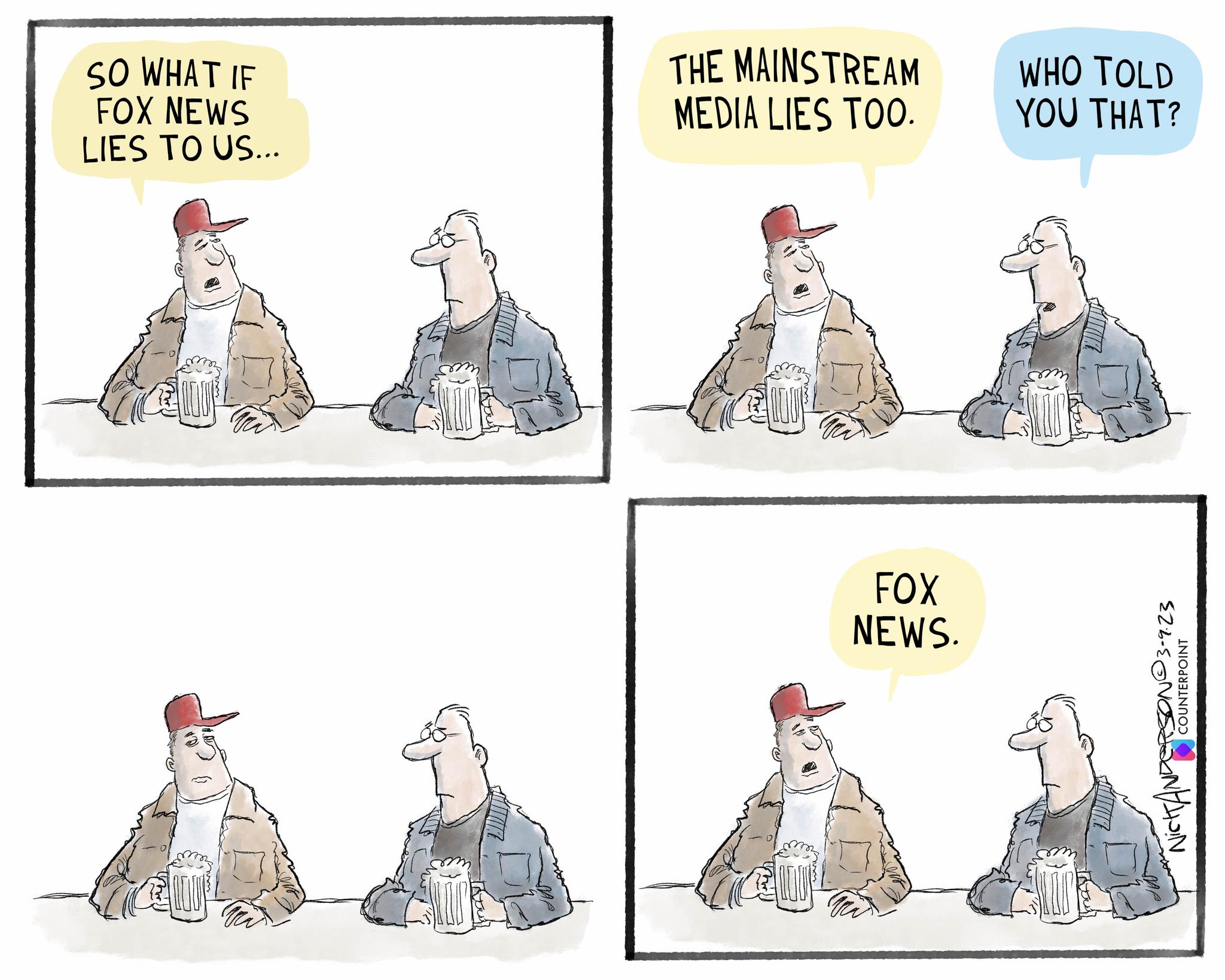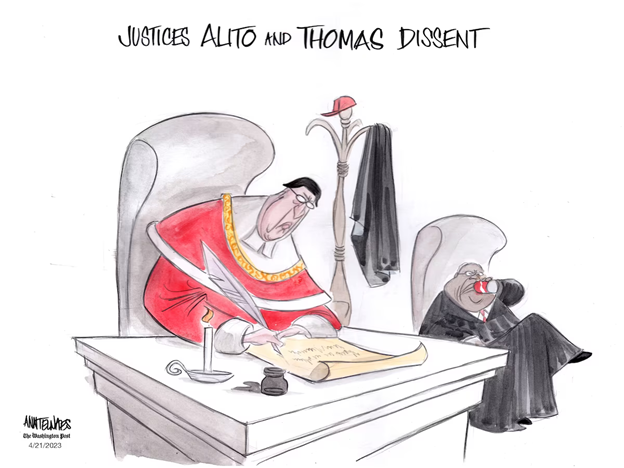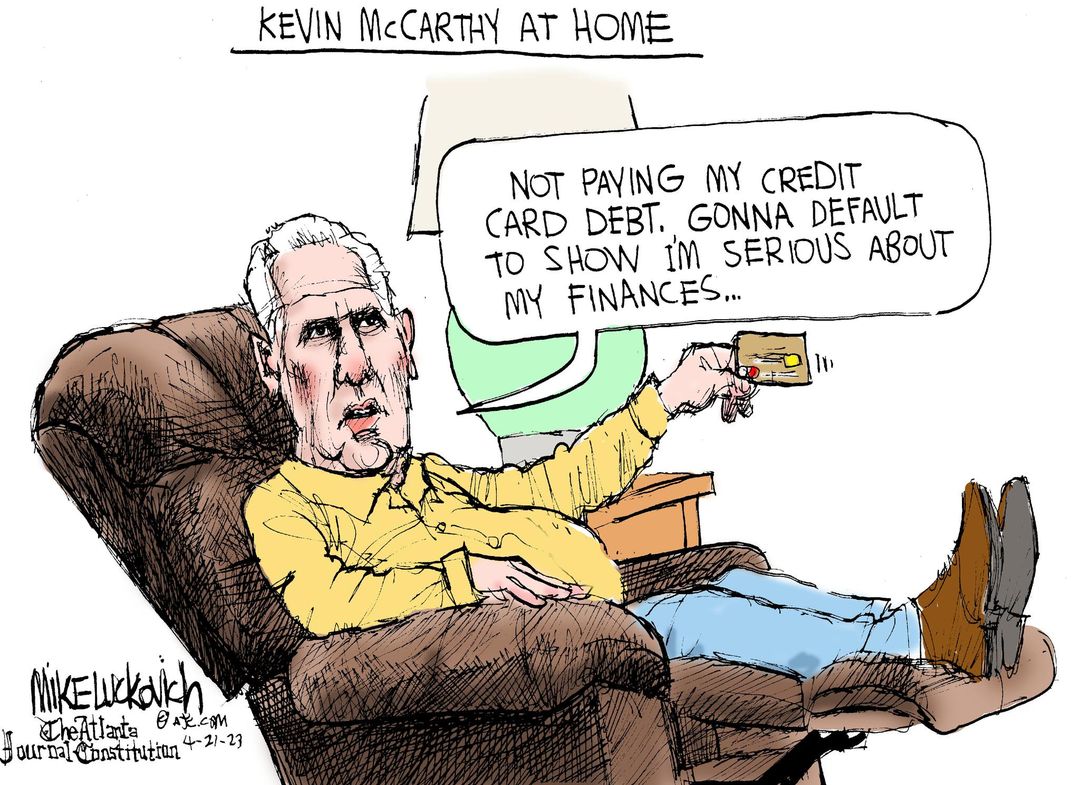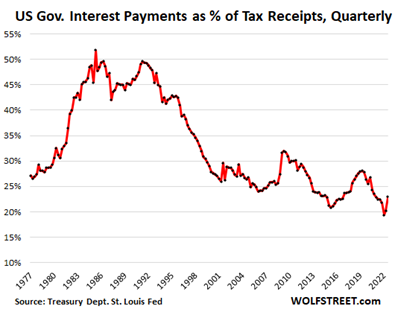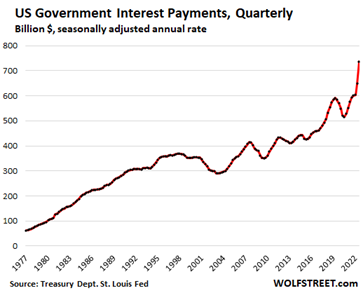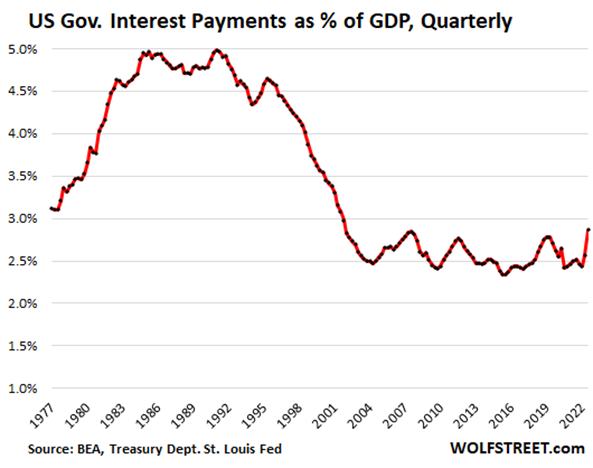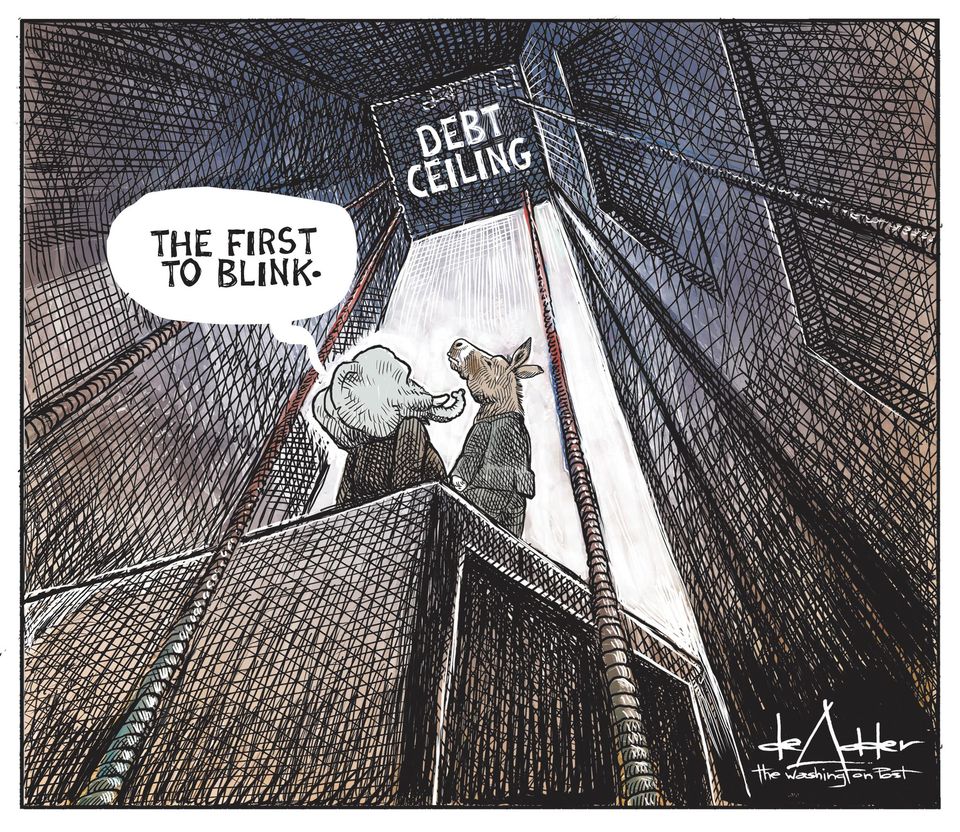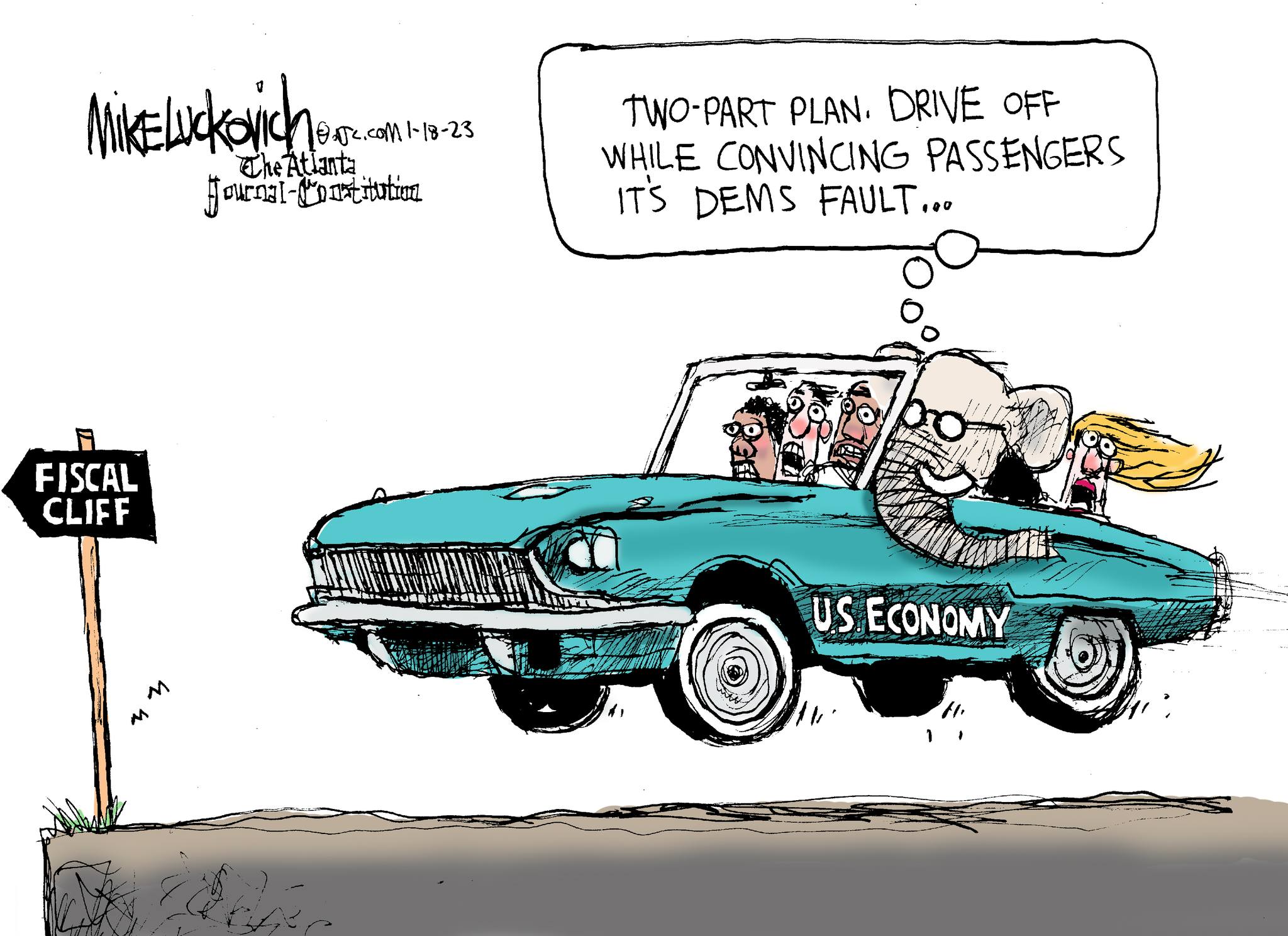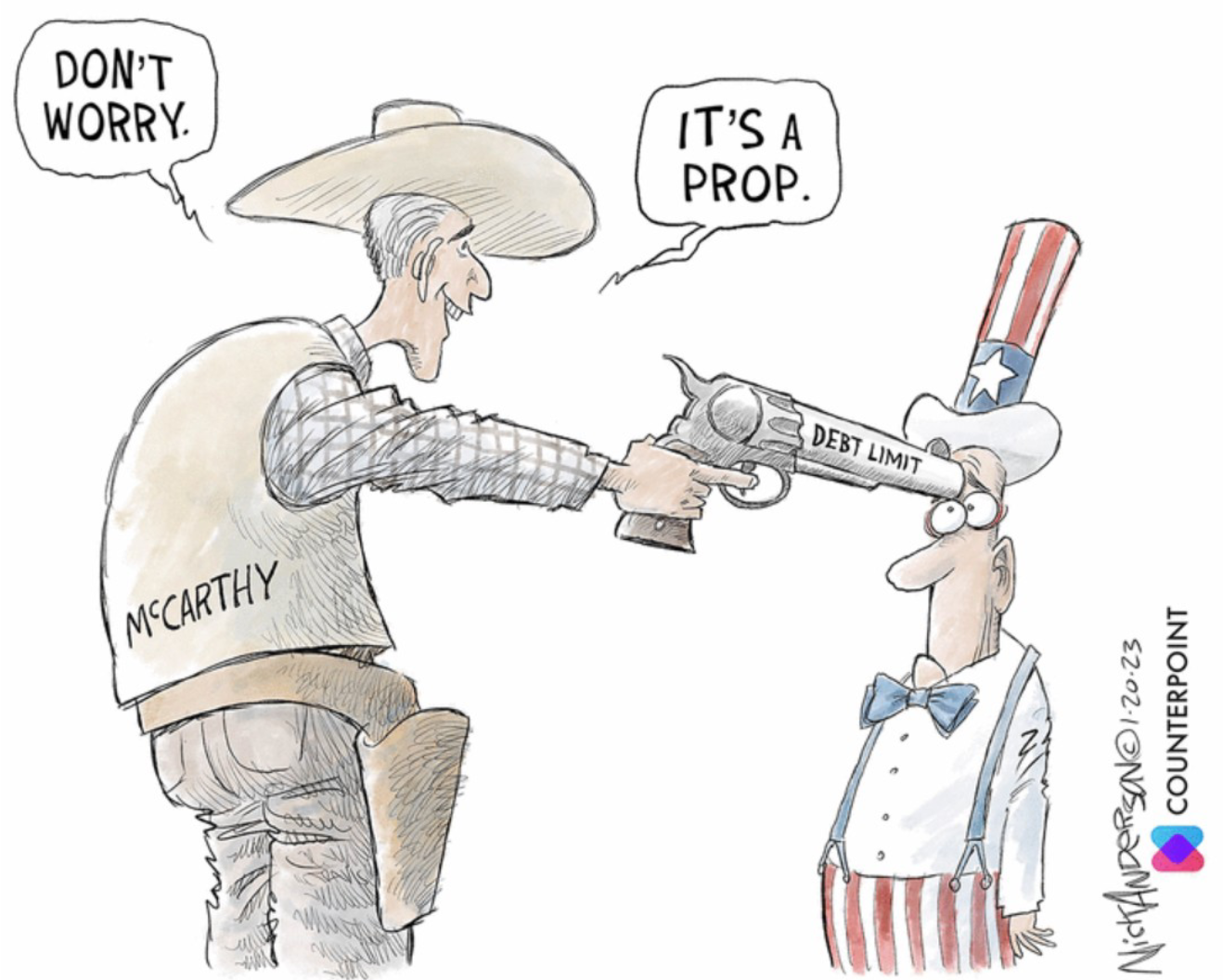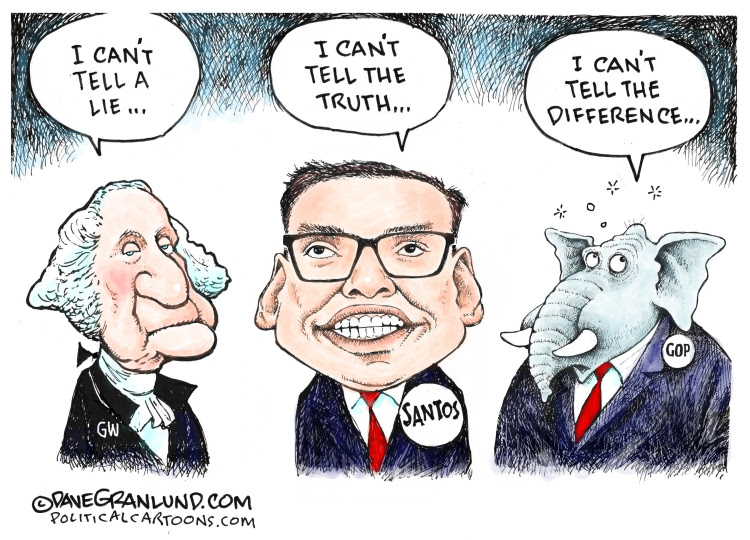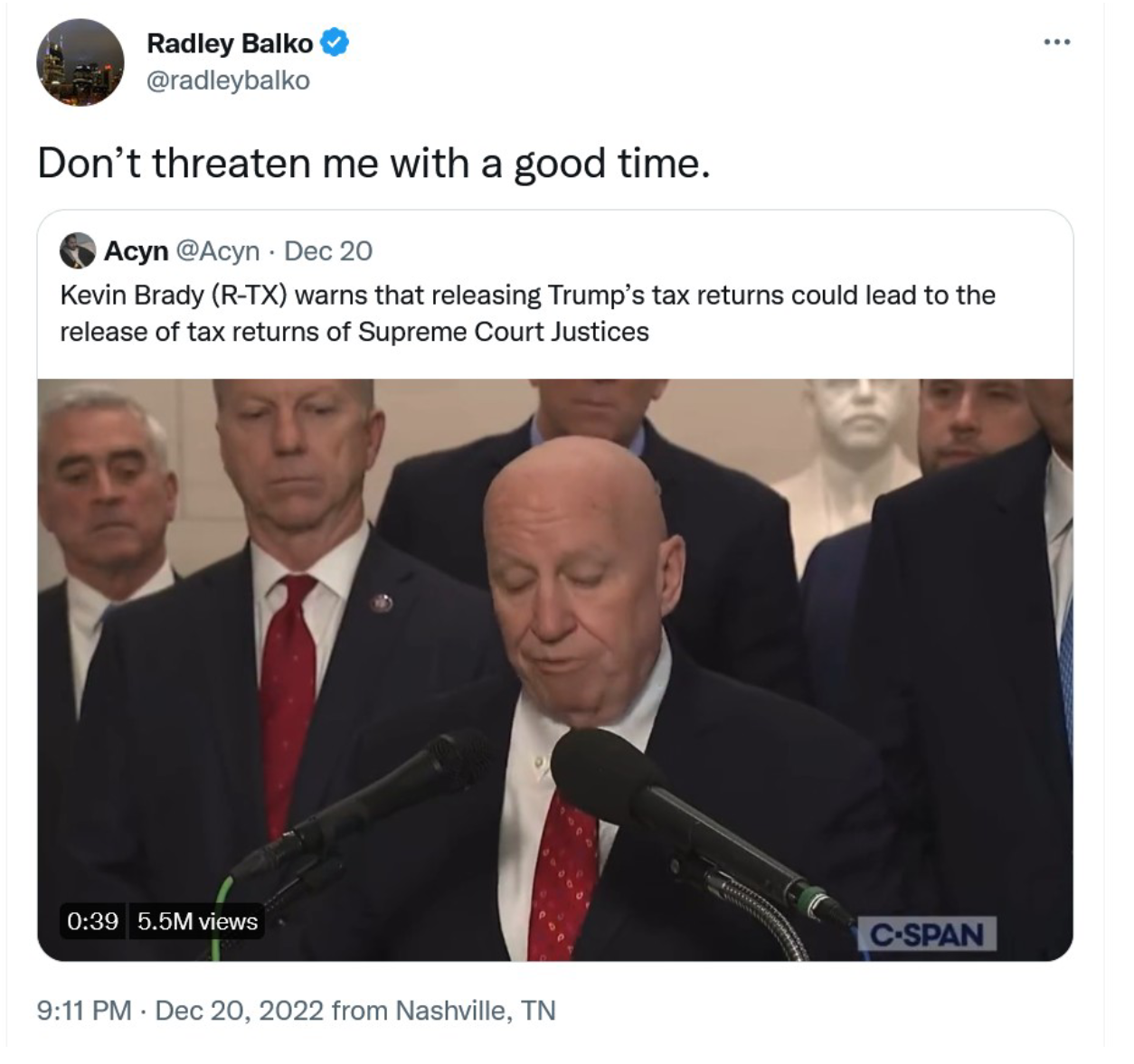The Daily Escape:

Saguaro in bloom, Gold Canyon, AZ – May 2023 photo by Karin Ingebrigtsen Hetsler
In the discussion about the Debt Ceiling, it’s become clear that America has a problem with tax collections, which are running behind what was forecast. While tax receipts were always expected to be below 2021’s robust levels, they are even weaker than forecast, down around 35% so far.
That means absent a deal between the Parties, we will hit the Debt Ceiling sooner than we thought. This is largely due to a weaker stock market and lower economic growth than the country had in 2021.
But it’s also true that America has an enormously complicated tax code, built by decades of lobbyists working with the Congress to carve loopholes into the Code to provide legal tax avoidance strategies to their corporate clients.
Imagine a world where corporations and individuals didn’t try to weasel out on their tax obligations to the government…Impossible, you say?
Well, consider Ukraine. We’ve been told that Ukraine is rank with corruption and a large informal economy. Both may be true but read what The Economist has to say about tax receipts during their war with Russia: (emphasis by Wrongo)
“After Russia invaded in February last year, Ukraine’s finance minister, Serhiy Marchenko, braced…for government revenues to “plummet”. He says he expected them to fall by roughly as much as economic activity. That did not happen. Although Ukraine’s GDP plunged by 29% in 2022, the state pulled in just 14% less than the year before.”
Of course the war led to drops in tax revenues from imports and tourism. Blackouts caused by Russian attacks on power plants and the grid disrupted automated reporting of taxable transactions. More from The Economist:
“What, then, is behind the state’s “unique results”, as an official puts it, in wartime revenue collection? One explanation is that firms and taxpayers, eager to support their country’s defense, are paying more tax than required.”
Still more: (brackets by Wrongo)
“According to Ukraine’s finance ministry, in March last year such donations came to 26b[illio]n hryvnias ($880m), rising to 28b[illio]n in May.”
Why are Ukrainian businesses and individuals motivated not to avoid taxes like in the US, but to make donations and pay taxes in advance? The Economist quotes a tax partner with Price Waterhouse Coopers, with responsibility for Ukraine:
“…if Ukraine wins, you’ve got your country; if Russia wins, thuggish authorities will take your money anyway, so why not help out now?”
A lawyer at a Ukraine law firm says that many of his corporate clients have asked for guidance on how to prepay taxes. And now a year later, the lawyer says that nearly all the 100-odd clients he serves have begun to prepay. According to the lawyer, efforts to seek loopholes to lower tax bills have decreased.
Finally, The Economist reports that Ukraine’s State Tax Service continues to receive payments, through its online portal, from the territories occupied by Russia (except for Crimea). Despite the pressure to pay Russian taxes, apparently, last year 2.3 million individuals and organizations in occupied areas paid $9.5 billion in taxes to Ukraine.
They are doing this despite the risk of retribution from their Russian overlords. Can you imagine anything like this happening in the shell of a country we call the United States?
There are other factors at work. Taxes on gas production were raised last year. The Economist quotes Danil Getmantsev, chair of the Ukrainian parliament’s Committee on Finance, Taxation and Customs Policy, who says that a crackdown on corruption also may have had something to do with it.
No one should think that Wrongo is saying that Ukraine is a better place to live and work than is the US. The key point is they are demonstrating that in a country that was thought to be barely unified before the war, it now acts as one. Try to imagine how, under similar circumstances what it would take for companies and citizens in the US to freely prepay their taxes. (Wrongo knows about the need in the US for some Americans to file quarterly returns, which is a form of prepayment).
Or imagine people willingly donating to the government in an effort to keep us free.
Nope. We’re addicted to fiscal gimmickry. Anything to pay less to the government. After all, Trump said not paying taxes showed that he was a smart guy.



